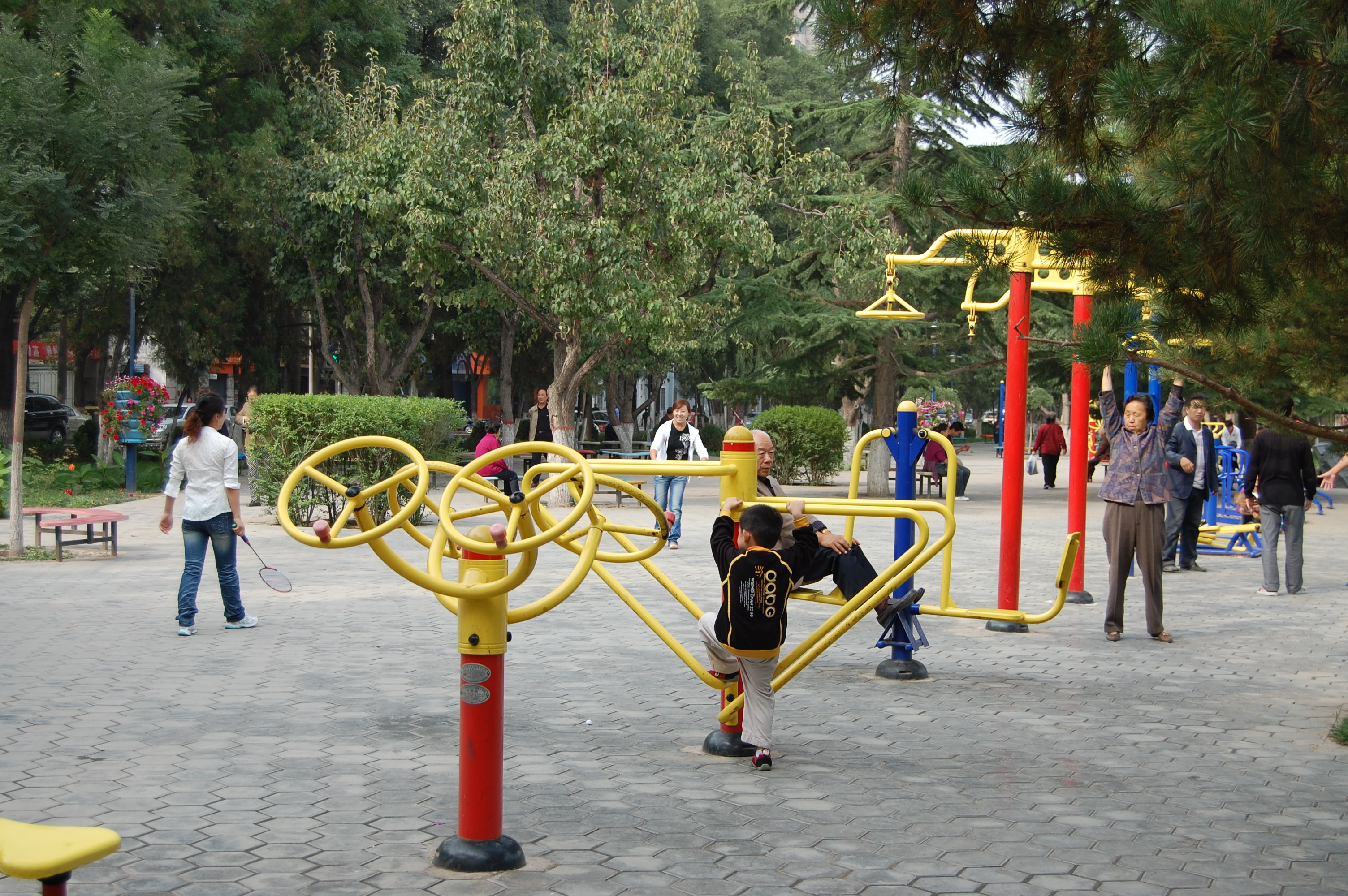Since the early 2000s, many Chinese schools and kindergartens have built synthetic running tracks on their campuses. However, many of these schools and kindergartens are underfunded and consequently tend to award contracts to the lowest bidders, often at a cost to the environment and human health.
According to a New York Times article, many of the contractors with low biddings built tracks with substandard materials such as recycled tires, cables, wires, and toxic glues. These contractors also often violate regulations by using bad construction practices that may cause the level of toxic components to exceed standards or that may involve applying certain organic solvents such as those containing toxic toluene and dimethyl benzene. In Beijing, Shanghai, and several provinces, schoolchildren are reported to have experienced nosebleeds, dizziness, skin rashes, and headaches after being exposed to the tracks. The parents of schoolchildren have been urging the schools and regulators to take action to address these environmental and health hazards.
A public interest environmental case recently settled in Beijing may help these parents in their efforts. The case was filed by China Biodiversity Conservation and Green Development Foundation (CBCGDF), a nongovernmental environmental protection organization that has been active in filing suits against polluters ever since the 2015 amendment of China’s Environmental Protection Law gave more space to public interest environmental litigation.
 |
The basic facts of the case follow. In late March 2016, the Beijing Liu Shikun Wanxiang Xintian Kindergarten (LSK), an organization running about 10 kindergartens across the country, installed synthetic running tracks on the playground at one of its kindergartens in Chaoyang District, Beijing. Once the tracks were in place, bad smells emitted from the tracks and many children got sick after playing on the tracks. After being informed of these incidents, CBCGDF sent a letter to the kindergarten, asking LSK to take action to remove the tracks, which were causing soil and air pollution and subjecting children to health risks. After the LSK rejected the requests, CBCGDF filed a public interest environmental suit at Beijing No.4 Intermediary People’s Court. In the complaint, CBCGDF requested the Court to order LSK to remove the hazardous running tracks and the pollution to air and soil. On July 21, 2016, the Court accepted the case. Based on the consent of the parties, the Court conducted mediation. While the mediation was in process, LSK replaced running tracks with grass lawn at the kindergarten in Chaoyang District and all other LSK-affiliated kindergartens. Satisfied with the efforts by LSK, CBCGDF settled the case on February 24, 2017. According to the settlement agreement, the kindergarten shall remove the synthetic running tracks at the kindergarten in Chaoyang District and donate $14,481 to the China Social Assistance Foundation for the purpose of environmental protection. On April 10, the Court closed the case by issuing judgment incorporating the settlement agreement.
It is remarkable that through public interest litigation, CBCGDF made a great impact while minimizing its financial and temporal litigation costs. Under the pressure of litigation, LSK removed toxic synthetic running tracks at all of its affiliated kindergartens rather than just the subject kindergarten in Chaoyang District. Moreover, the repair and restoration was conducted when the settlement was still in progress. As a result, the children at LSK kindergartens did not need to wait long for the problem to be rectified.
The LSK synthetic tracks case is the first breakthrough at courts to solve the environmental and health problems related to substandard running tracks at schools. Though many schoolchildren still need to wait for the toxic tracks to be removed nationwide, the LSK case makes the solution of that problem more promising. The public interest litigation case against LSK has already helped hundreds of schoolchildren affected by the case and their parents. The case also increases public awareness of the environmental and health risks of substandard tracks, puts much higher pressure on the government and schools to solve the problem, and shows that public interest litigation is helping in a highly visible way to deliver a cleaner environment as envisioned by the environmental laws of the world’s most populous country. Not surprisingly, this case was recently named one of the top 10 public interest litigation cases for the year of 2016 by some of China’s most prestigious institutions focusing on public interest litigation.
